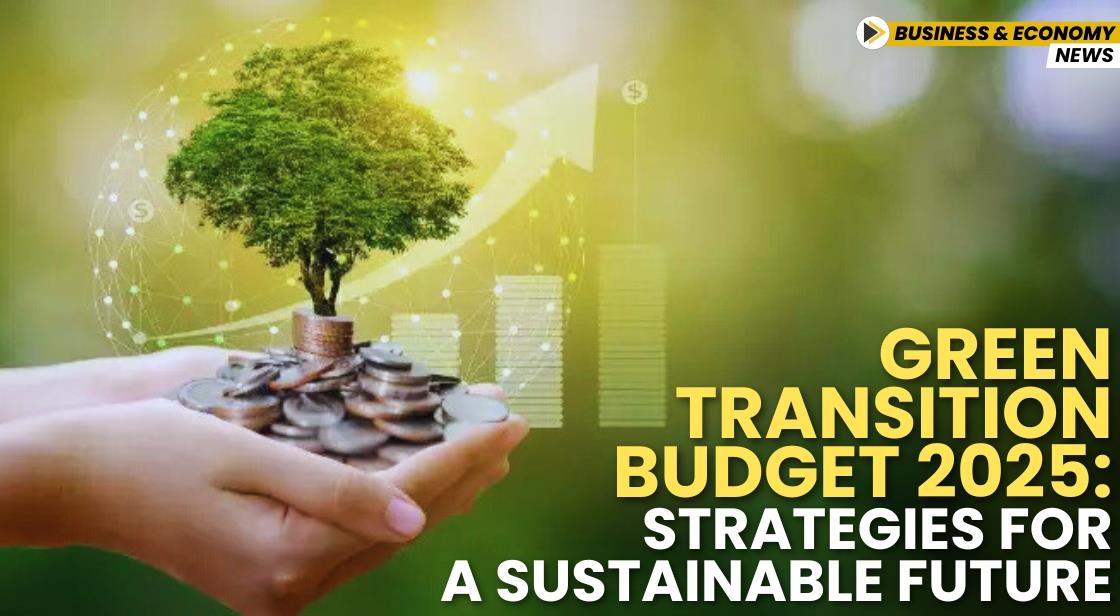Green Transition Budget 2025: Strategies for a Sustainable Future

News Synopsis
As the world faces unprecedented climate challenges, 2024 has been declared the hottest year on record by the World Meteorological Organization. With the last decade witnessing the ten hottest years in history, the urgency for robust climate action has never been greater.
India, a key player in the global climate arena, has made remarkable progress by nearly tripling its renewable energy capacity since 2014. The nation is on track to achieve its ambitious target of 500 GW renewable energy capacity by 2030.
Green Transition: Expectations and Recommendations for Budget 2025
Policies like the Production-Linked Incentive (PLI) schemes and Faster Adoption and Manufacturing of Electric Vehicles (FAME) have been instrumental in fostering green manufacturing and e-mobility.
However, achieving the next level of climate goals requires a well-structured tax framework to boost green investments, enhance renewable energy adoption, and foster sustainable practices. Budget 2025 presents an opportunity to solidify India's commitment to sustainability.
Promoting Green Financing and Investments
At the COP29 summit in Baku (November 2024), India emphasized the critical role of climate finance for achieving global climate targets, especially in developing nations. A clear ‘climate taxonomy’—defining sustainable investments—is essential to streamline access to incentives for green projects.
Additionally, introducing tax incentives like reduced interest rates on green investments and exemptions or reductions in capital gains tax can attract substantial capital inflow into India’s green economy.
With international carbon markets playing a pivotal role in financing green transitions, the government must clarify tax treatments of carbon credit trading and its GST implications.
Encouraging Technological Innovation
India’s green transition currently relies heavily on foreign technology. To drive domestic innovation, the government should consider:
-
Corporate income tax exemptions or reductions for companies and startups focusing on green technologies.
-
Accelerated depreciation allowances for green tech investments.
-
Super deductions (200%) for R&D in emerging technologies such as carbon capture, battery storage, and grid technology.
However, these incentives must align with the global minimum tax rates proposed under the Pillar 2 framework to avoid complications in international taxation.
Incentivizing Electric Mobility Adoption
India’s transition to sustainable mobility requires targeted measures to promote electric vehicle (EV) manufacturing and charging infrastructure development. Proposed steps include:
-
A time-bound tax holiday regime for EV manufacturers.
-
Accelerated depreciation benefits for charging infrastructure.
-
Tax rebates for citizens purchasing EVs, encouraging widespread adoption.
-
Harmonizing GST rates across the EV value chain and lowering duties on critical components like batteries to make EVs more affordable.
These measures can significantly reduce production costs and ensure greater accessibility for the public.
Boosting Green Hydrogen Development
India’s National Green Hydrogen Mission positions the country as a global hub for green hydrogen production, usage, and export. To bolster this mission, the government must:
-
Reduce GST rates on green hydrogen and ammonia.
-
Offer relaxations for setting up production plants in Special Economic Zones (SEZs) and Export-Oriented Units (EOUs).
-
Lower customs duties on essential materials for green hydrogen production.
Expanding these benefits to renewable power plants supplying energy to green hydrogen units will further enhance the sector's growth.
Ensuring an Equitable Transition
The shift to a green economy could lead to job losses in traditional sectors. To ensure a just transition, the government should focus on:
-
Retraining and reskilling displaced workers.
-
Incentivizing companies to invest in worker training programs.
-
Establishing social safety nets to support vulnerable communities during the transition phase.
Inclusive policies will be crucial for mitigating the societal impact of transitioning to a greener economy.
Conclusion
As global temperatures rise at unprecedented rates, the need for immediate action to combat climate change has become paramount. India has made significant progress in its renewable energy journey, but the road ahead demands greater commitment and innovation.
Budget 2025 offers a historic opportunity to reinforce India’s green transition through strategic tax reforms, targeted incentives, and inclusive policies. By leveraging this budget to accelerate sustainable growth, India can solidify its position as a global leader in climate action.
The time to act is now—the choices made today will shape the planet's future for generations to come.
You May Like









